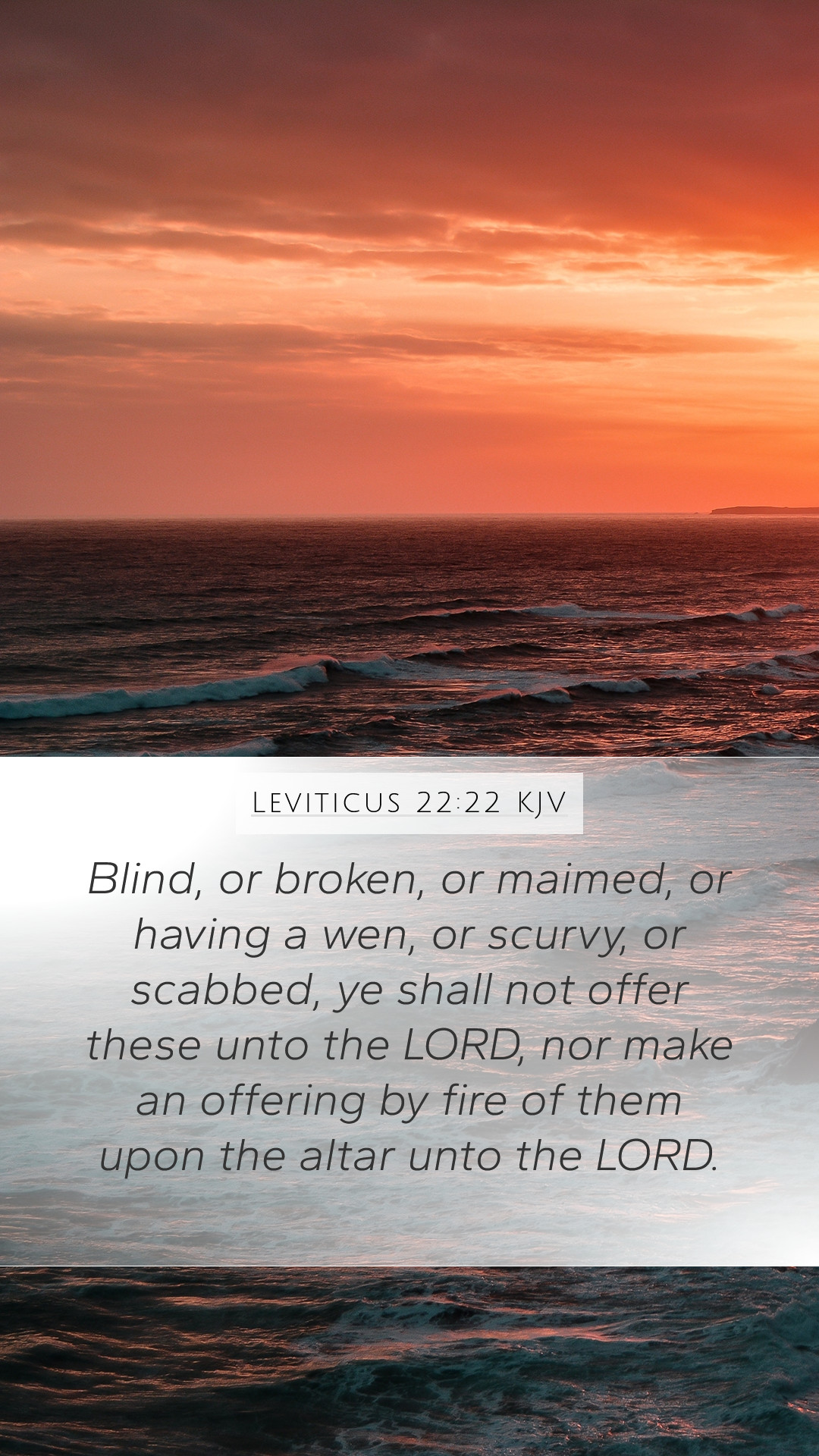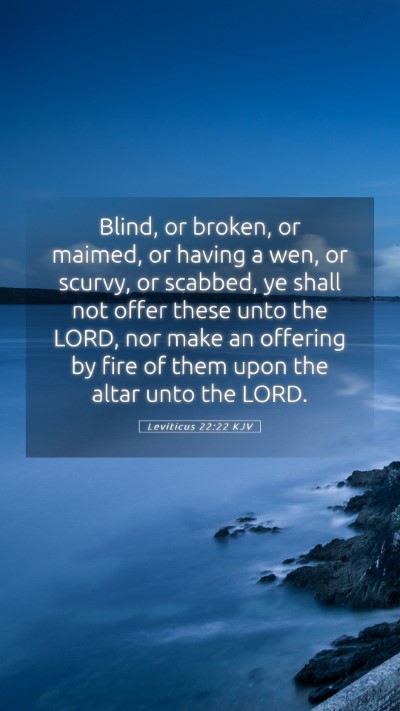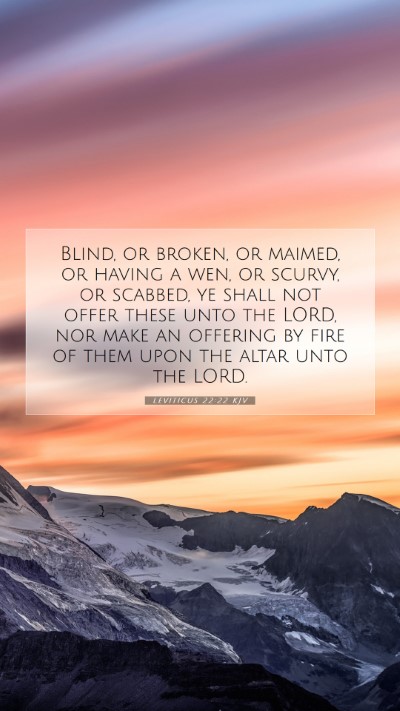Understanding Leviticus 22:22
Leviticus 22:22 states, “You must not offer to the Lord the blind, the injured, or the maimed, or anything with warts or festering or running sores. Do not place any of these on the altar as a food offering presented to the Lord.” This verse holds deep significance in the context of worship and sacrifice in the Old Testament.
Commentary Insights
To grasp the meaning of this scripture, we can draw insights from notable public domain commentaries:
- Matthew Henry: Henry asserts that the requirement for unblemished sacrifices showcases God’s demand for perfection in offerings. It reflects the holiness of God and the need for His people to approach Him with their best, symbolizing the ultimate sacrifice of Christ who was without blemish.
- Albert Barnes: Barnes emphasizes the theological implications of unacceptable offerings. By prohibiting the offering of defective animals, the text instills a deeper understanding of how offerings should symbolize the worthiness and holiness of the giver’s devotion to God.
- Adam Clarke: Clarke provides additional historical context, explaining that these regulations served to maintain the sanctity of offerings presented to the Lord. By rejecting flawed offerings, the Israelite community was reminded of the seriousness of sin and the need for redemption.
Meaning and Application
The essence of Leviticus 22:22 rests in a few key concepts:
- Holiness: God’s holiness requires that His people present offerings that reflect their reverence and dedication.
- Perfection: The demand for unblemished sacrifices points to Christ, who fulfills this law as the perfect sacrifice for humanity.
- Symbolism: Our physical offerings can symbolize the spiritual state of our hearts; thus, presenting our best aligns with sincere worship.
Cross References
Related scripture passages that enhance the understanding of Leviticus 22:22 include:
- Malachi 1:8 - Discusses the importance of offering pure sacrifices.
- Hebrews 9:14 - Explains how Christ's sacrifice was without defect.
- Exodus 12:5 - This verse describes the lamb offered during Passover, emphasizing its necessity to be without blemish.
Conclusion
In summary, Leviticus 22:22 serves as a foundational verse that underlines the principles of acceptable worship, the foreshadowing of Christ’s sacrifice, and the importance of approaching God with sincerity and holiness. Through reflecting on this verse, one can gain profound Bible verse meanings that are not only historical but also relevant for today’s Bible study insights.
Further Study
For those interested in expanding their Bible study topics concerning this verse, consider exploring:
- How to interpret Bible verses in light of Old Testament laws.
- The role of sacrifice in the New Testament compared to the Old Testament.
- In-depth Bible verse analysis of related topics on ceremonial cleanliness.
Understanding Leviticus 22:22 offers a means for deeper reflection on the nature of God’s requirements and the significance of divine sacrifice, encouraging believers to present themselves as living sacrifices (Romans 12:1) in their worship and daily lives.


